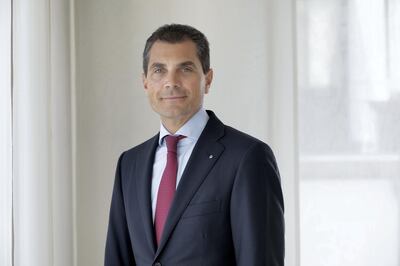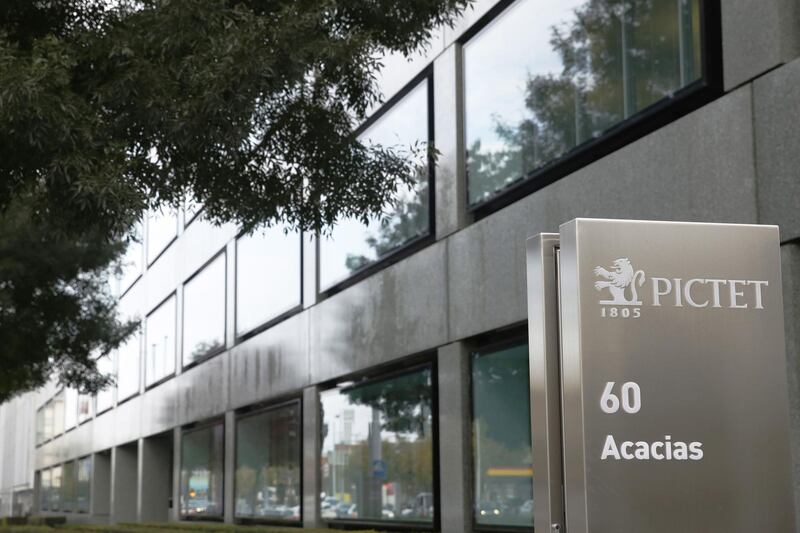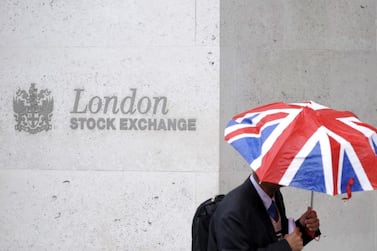Like it did for most businesses during the Covid-19 pandemic, technology came to the rescue of Pictet Group, which oversees 609 billion Swiss Francs ($670bn) of assets.
Though Switzerland's biggest privately owned bank harnessed the latest technologies to stay in touch with customers during the health crisis, it prefers to service clients the conventional way with face-to-face meetings, and is investing in its headcount in the Middle East, Daniel Savary, its head of wealth management in the Middle East and Africa told The National.
“We are still in a business where personal interaction remains very crucial,” Mr Savary, who is also a member of executive board of Pictet Wealth Management, said. “It [the technology] is not replacing … the physical interaction. The client proximity is very important.”

The crisis, he said, has shown that digitalisation in the financial services industry is at an advanced stage and institutions can adapt when they have to. Technology, has proven to be time efficient and even when the health crisis is over, the sector will continue to invest in it.
“Now, is it [going to be] used with the same intensity as borders are opening again ... I doubt [it],” he said. “As long as there is no other solution, and as long as we cannot travel, there are restrictions and quarantine measures”, technology will remain a vital tool for staying in touch with the firm’s clients, he added.
Pictet, which has been advising affluent and institutional clients in the Middle East and Africa out of Geneva and Zurich with a representative office in Dubai for more than two decades, is looking to hire top talent to serve the region that has seen a double-digit growth in business in recent years.
“We want to continue selectively hiring senior people and of course grow our asset base … not only organically through existing clients, but also by converting our prospective pipeline into new relationships,” Mr Savary said.
Clients in the Middle East represent “a substantial part,” of its total assets under management he said, declining to give further details.
Pictet’s growth ambitions are focused on the hydrocarbon-rich GCC states and the Levant, a region which has seen a significant rise in the number of ultra-wealthy.
The number of ultra-high-net-worth individuals in the Middle East, those with a net worth of over $30 million, is projected to increase 24.6 per cent in the next five years and the region will retain its position of the world's fourth-largest wealth hub, according to a Knight Frank.
The global population of the ultra-wealthy is forecast to rise 27 per cent over the same period to almost 663,483 from 513,244 in 2019. Asia is likely to see the largest rise in the number of UHNWIs with growth of 39 per cent.
Pictet has seen double-digit growth in its client base recently and the company is open to portfolio acquisitions from other asset managers on a case-by-case basis despite not completing one in the past, Mr Savary said. This may further boost its Middle Eastern portfolio, he added.
On the investment front Pictet sees rising appetite for riskier assets, driven by prospects of a faster economic recovery and quick rollout of vaccine programmes in some of these markets.
“What we have realised is that investors have been rushing back to rather risky assets,” as low interest rates, abundant liquidity, fiscal stimulus and low inflation are all contributing to renewed confidence, Mr Savary said.
"For me, emerging markets will outperform this year as global recovery continues,” he said.
Investors favour cyclical equities in emerging markets and the industrial sector. Healthcare, infrastructure and companies with green recovery themes are also on the radar of investors, Mr Savary said.








